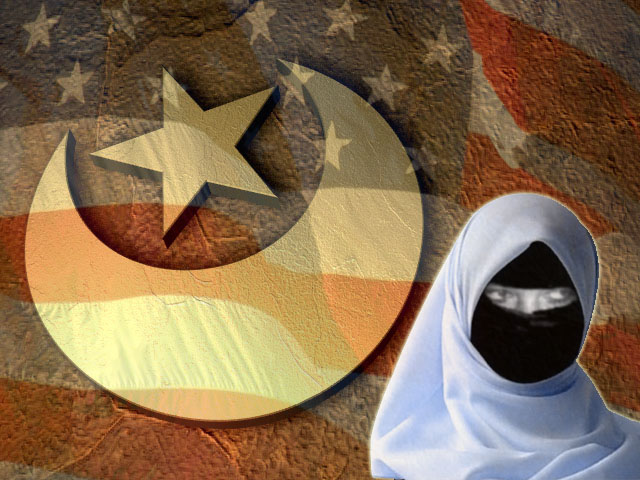Why “We” Fight
Mark Steyn defends Kathryn Jean Lopez’ honor from a letter writer who took issue with her use of the sentence “It’s about why we fight” despite the fact that she is not, never has been, and likely never will be a member of the United States armed forces. Steyn argues that,
[T]he notion that “fighting” a war is the monopoly of those “in uniform” gets to the heart of why America and its allies are having such a difficult time in the present struggle. Nations go to war, not armies. Or, to be more precise, nations, not armies, win wars.
That’s certainly true, so far as it goes. It’s established wisdom, for example, that America’s industrial might was decisive in helping the Allies win WWII. Without the Americans on the homefront working in the factories, making various sacrifices of personal comfort, those men who put on the uniform and slogged through North Africa, Europe, and the Pacific would not have been victorious. That’s not even to mention the crucial role played by scientists and inventors who developed technological advances, not least of which were those who worked on the Manhattan Project.
Steyn is also right, I believe, that those who shape the debate over national strategy and influence the morale on the homefront play an important role. George C. Cohan was awarded a Congressional Gold Medal for the enormous contributions he made in that regard in WWI, even though they were limited to “mere” songs and plays.
Because of the role the citizenry plays in a war effort, and because of the fact that wars are (usually) nationally unifying events, the use of the pronoun “we” is one that strikes me as perfectly reasonable for Americans not wearing a uniform to use when referencing a war in which we’re fighting. Indeed, as an American, I feel no compunction in using the personal pronoun in reference to wars that were fought before I was born, let alone took part in. “We” won “our” independence from the Brits and “we” defeated the forces of facism in the 1940s. (More trivially, I routinely refer to sports teams I root for in the same way.)
In the original draft of this post, I took small exception to Lopez’ using the word “fight” in a possessive sense, arguing that “it is somewhat unseemly to those not in harm’s way on the battlefield to use that particular term.” Upon proofreading, though, I realized I had done the exact same thing in the previous paragraph. It’s simply a natural thing to do, for the same reason that I justify the use of the word “we.”
Regardless, however, I join Glenn Greenwald in rejecting the notion at least implied by Steyn that those who write about the war are thereby “fighting” the war. There’s a subtle but I believe real distinction between writing a column about why “we’re fighting the war,” meaning why the nation is at war, and arguing that one’s sitting behind a keyboard is tantamount to going into harms’s way.
I’m not making the “chickenhawk” slur here. Even though I’m a combat veteran of the first Gulf War and my dad’s a Vietnam vet, neither of us would claim that we’re personally “fighting” this war; that’s an honorific reserved to another generation of American fighting men. Nor would I argue that our service gives us any more right to voice our views on this or any other war than any other American.
I’m a believer in the power of ideas. It is almost certainly the case, for example, that the likes of Bill Kristol have had more influence on the Iraq war effort than almost any individual service member. That’s a different thing, though, than saying that punditry is tantamount to serving in combat.





Those of us “fighting” here at home haven’t been asked to sacrifice anything. Nothing. The idea that you are somehow fighting from a keyboard is laughable. It’s common, but still laugable. What does Mark Steyn have at risk?
Pug: Agreed; that’s the point of the last couple of paragraphs. Again, I make a distinction between writers speaking of the war in a collective sense, which I think perfectly legitimate, and claiming to be “fighting” BY writing, which I find silly at best.
Not so fast.
What would you say of those opposed to the war effort who claim they’re fighting for peace?
I submit when so much of the battle campign of radical islam is slated in the public opinion arena, that fighting for hearts and minds here at home, is half the battle anymore. Consider, if allowed to run unchecked, where would the anti-war crowd take us?
That way lies the defeat of Vietnam, and the elslavement of that entire region following our early withdrawal, for example.
Don’t any of you guys remember songs like “We Did It Before (And We Can Do It Again)” and movies like the “Why We Fight” series by Frank Capra? Lay off Lopez. She was just deploying the turn of phrase coined by the immensely popular Capra series. I knew and appreciated exactly what she meant by the first person plural. Heck, I’m 53 and remember viewing those films on (black and white) TV and in the classroom twenty years after VJ Day. Pity how shallow and foreshortened our common national memory seems to be. And how many fail to realize that if “they” are defeated in “their” war against Islamic fascism, “we” all shall loose.
This war on Iraq was lost the moment Bush launched it. It is a cold hard fact that a war based upon lies is a war not worth fighting.
Americans are not dumb. We know this war is not worth it. And Bush scrambling about trying to find some reason to convince us that it is worthwhile is beyond pathetic. It is insane.
Blaming Americans, like Bithead does, for not falling for the lies is not very smart either. Nor is it productive.
The minority of Americans who still want to fight innocent foreigners must have their own personal reasons. Fine. Let them go fight Innocent foreigners. Most of us just don’t want you to use our military or our treasury to do so. Leave us out of it. That is how most of us think.
We have a job to do that Bush has left unfinished. We still need someone willing to go get Osama and the others responsible for attacking America.
When that is done we will finally have justice.
Ken:
I think you are mistaken because you have ignored the history of Executive Orders, Congressional actions and United Nations Resolutions leading up to the March, 2003 Iraq invasion.
What you call “lies” are not lies at all. If you can quote me one passage in a Bush speech leading up the Iraq war that he had no rational basis for believing at the time it was made, I will listen to your argument. Otherwise, I cannot accept the premise of your comment.
JJ’s right on both counts. “We” were bombed at Pearl Harbor, fought Japan, etc. — there’s nothing wrong with that expression.
OTOH, the 101st Fighting Keyboarders are just pitiful. If people had a better sense of how horrible war is, we wouldn’t see so much faux-machismo. Ain’t nothin’ stoppin’ ’em from heading on down to the Armed Forces Recruiting Station …
Perhaps the verb “fight” does not fit, but certainly Thomas Paine’s writing was indispensible in the Revolution.
And can you doubt the power of propaganda (whether written or graphic or danced) to sway public opinion in a positive and negatives ways.
So, if not “fight”, then what would you say George Cohen, Thomas Paine and all those Soviet graphic artists were doing with their talents?
Lunacy
….Perhaps they’d not have declared war on us, huh?
Uh..Bithead. Perhaps you haven’t yet heard, but Iraq did not declare war on us. We declared war on them. That’s why it is called “pre-emptive war”. We were attacked by terrorists trained, located and plotting against us in Afghanistan, not Iraq. Just FYI.
Uhh… perhaps you’ve not noticed that this business does not involve merely one country.
And by the way; The terrorists WERE trained in Iraq, and the Iraqi gopvenment DID have an active weapons program.
Just FYI.
Steyn doesn’t equate punditry to physically fighting the war at all. Why you would do him such an incredible disservice as to buy into Greenwald’s parsing of the language that way is beyond me. I suppose, given the link, that you also buy into his smearing of so many other fine writers and individuals he pegs as “neo-conservative,” when several are far from conservative – and most also just happen to be Jewish.
As usual, he even makes it personal with his comments on Goldberg and starts off by calling Levin a war monger simply because he sees Islamofascism as a clear and present danger.
I don’t know. Per Hugh Hewitt, I’m on the front lines, and in serious danger sitting in my office in NYC.
jpe:
Ever heard of Theo Van Gogh?
More important is not who is fighting in the war, but which side they are on.
I take immediate offense to any comment about keyboard commandos, because the idiot making such a statement has no idea of the background of any other poster. Equally moronic is the tired liberal challenge to ‘go over there and fight youself’. I won’t even get into it.
Yes, war is terrible. Perhaps more liberals need to look into, and smell the stench, of mass graves to realize the responsibility of being a world power.
Peace is great when you can sit all comfy and cozy in the U.S., and ignore the real tragedies in the world. It might give a different perspective on pumping out anti-U.S. propaganda. So to use your suggestion, why don’t YOU go over there if you care so much?
Good post, James.